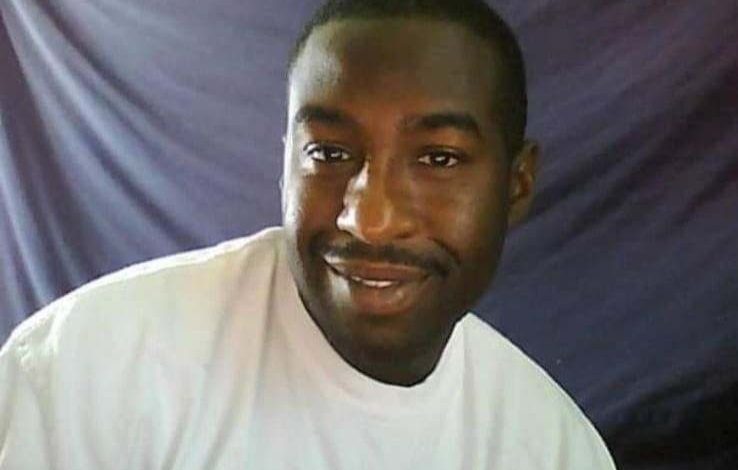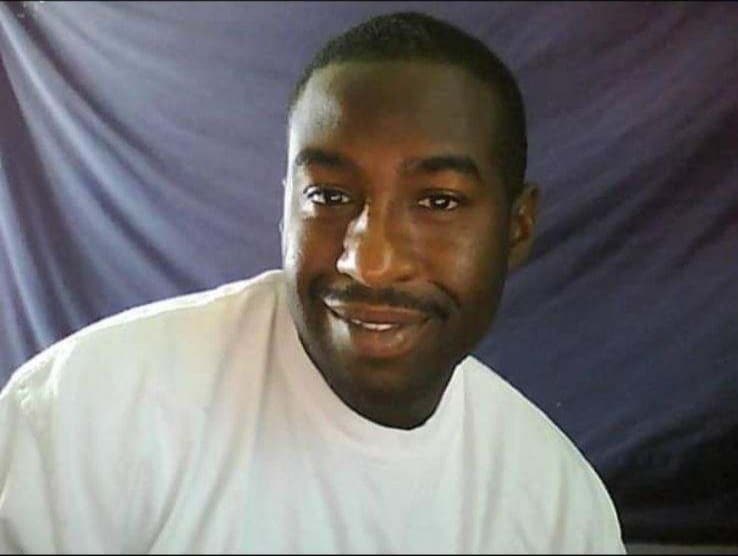The Heartbreaking Words That Inspired My Fight to Save Black Men


Multiple myeloma is a rare, aggressive blood cancer that disproportionately impacts Black men. Despite its increasing prevalence, it remains relatively unknown and often diagnosed in its later stages. For Frances, the devastating diagnosis of her husband’s multiple myeloma changed her family’s life forever. However, through grief and pain, she found a mission — to raise awareness, educate others, and advocate for early detection and better treatment options.
BlackDoctor.org spoke with Frances who shared her heartfelt story of navigating her husband’s diagnosis, treatments, and eventual passing.
A Sudden Diagnosis That Changed Everything
Frances describes her husband as a healthy, active man who loved playing basketball and taking care of his family. But one evening, he called her with alarming rib pain that he couldn’t ignore.
“He said something that really scared me,” Frances recalls. “He said, ‘If I don’t make it home tonight, I want you to know that I love you.’”
That night, they rushed to the hospital. Within hours, doctors delivered a life-changing diagnosis: her husband had multiple myeloma, an aggressive blood cancer that attacks the bone marrow and weakens the bones.
“At that time, I had never heard of multiple myeloma. I’d heard of leukemia and pancreatic cancer, but not this. That was the night our journey with multiple myeloma began,” Frances tells BlackDoctor.org.
RELATED: Multiple Myeloma: How it’s Damaging Your Bones and What You Can Do
Navigating Treatment: The Challenges and Setbacks
From the moment of diagnosis, Frances became her husband’s strongest advocate. Despite the overwhelming news, she dove into research, determined to understand the disease and explore every available treatment option.
“I wanted to know about clinical trials, treatments, and everything else. Unfortunately, they discovered his multiple myeloma late—he was already in stage 3,” Frances adds.
The treatment was grueling. Her husband went through countless rounds of chemotherapy, a cocktail of medications, and a stem cell transplant at UC Davis’s Bone Marrow Transplant Center.
“He had an amazing doctor and a supportive team. They enrolled him in clinical trials and prescribed medications like dexamethasone (a steroid) and Revlimid, specifically for multiple myeloma. He also took antiviral medications, as they had to completely wipe out his immune system before the stem cell transplant,” Frances says.
However, the treatments came with complications.
“He endured several hospitalizations for pneumonia and sepsis—he had sepsis two-and-a-half times, which is extremely rare and dangerous,” she adds.
Despite the challenges, Frances saw her husband enter remission. But the victory was short-lived.
“With multiple myeloma, remission doesn’t mean the journey is over—it can return more aggressively, and that’s what happened to us,” Frances notes. “When the cancer came back, it was more aggressive. The doctors adjusted his treatments, trying different drug cocktails and clinical trials. I noticed that steroids were particularly effective in keeping his multiple myeloma under control, so I advocated for their inclusion in his treatment plan.”
“Sometimes oncologists don’t always take into consideration what you’re saying, even though you’re either the person living with the cancer or the person taking care of someone with cancer,” Frances adds.
RELATED: Treatment Approaches for Newly Diagnosed Multiple Myeloma Patients
The Toll on Family Life
Throughout her husband’s treatments, Frances juggled being a caregiver, a mother, and a full-time worker. When her husband underwent the stem cell transplant, she was pregnant with their youngest daughter, making the balancing act even more challenging.
“I would go to work, then rush to the hospital to be with him,” Frances shares. “He was in an isolated room because he had no immune system. It was hard, but we did everything we could to fight the disease.”
Her husband’s battle lasted five years and three months — surpassing the five-year life expectancy doctors had initially given him.
Unfortunately, in March 2023, he passed away after another bout of pneumonia and sepsis.
“He passed away about two and a half weeks shy of our anniversary. We were together for a long, long time, and I just didn’t know what to do or how to navigate life. What I found, though, was that I didn’t want someone else to have to go through that,” Frances shares. “I didn’t want someone else to have to learn, research, and do so much work to figure out what this disease was. It’s affecting Black men at an alarming rate, and my husband was really young when he was diagnosed.”
According to the Multiple Myeloma Research Foundation, Black patients tend to have an earlier average age at diagnosis by five to 10 years with the disease being twice as deadly in comparison to whites.
Turning Pain into Purpose
In the wake of her husband’s passing, Frances knew she had to do something to honor his memory and help others. She launched Myelobitz, an informational website dedicated to raising awareness about multiple myeloma.
The website offers:
- Educational resources on multiple myeloma
- Information on clinical trials
- Forums for patients and caregivers to share their experiences
- Links to support groups and organizations
“The website has had its ups and downs, but I’m actively trying to spread awareness about what myeloma is, what to look out for, and the importance of regular checkups. Taking care of yourself is more important than people often realize,” France shares.
Frances also sells custom products through the site, with proceeds going toward cancer research at UC Davis’s Bone Marrow Transplant Center.
“I want to give back to them or to the Cancer Society so they can fund more research, whether it’s clinical trials, more effective drugs, or holistic care options—anything to get a better handle on this disease. As I said, it’s affecting Black men at an alarming rate, and I don’t want another daughter to lose her father, or another mother to lose her son, like we did,” Frances says.
RELATED: Can Clinical Trials Help Black Multiple Myeloma Patients?
The Importance of Clinical Trials and Advocacy
A key part of Frances’ is encouraging more participation in clinical trials. She acknowledges that there is mistrust in the Black community toward medical research, but she stresses that these trials are crucial for improving treatment options.
“Clinical trials gave my husband more time,” Frances says. “I know it can be scary, but it’s scarier to lose someone you love without exploring every option.”
She also emphasizes the importance of routine checkups, especially for Black men who are at a higher risk for multiple myeloma.
“You also need to find the best lifestyle changes to help with healing, including diet, exercise—everything the medical community recommends for other conditions like high blood pressure. It’s applicable to cancer, too, especially this type of cancer. Diet, exercise, and regular checkups—whether annual or semi-annual—are so important. If you catch it early enough, your chances of survival increase significantly compared to catching it later, when you’re just trying to keep things at bay long enough to reach those milestone moments,” France advises.
RELATED: Essential Tips For The Multiple Myeloma Caregiver
Advice for Caregivers and Patients
Frances offers valuable advice for those navigating a multiple myeloma diagnosis:
- Ask Questions: “I know it’s a complicated journey with a lot of treatments and potential complications. It can be extremely scary and overwhelming, but the one thing I’ll say is to always ask questions. If you don’t understand something, if you’re unsure, if you’re overwhelmed—whatever the case may be—ask questions. Whether it’s your oncologist, your hematologist, or any member of your cancer care team, ask questions.”
- Participate in Clinical Trials: “Be open to participating in clinical trials. Clinical trials are so, so, so important. You never know how they may benefit you unless you’re open to them.”
- Make Lifestyle Changes: “The interesting part is that lifestyle changes are probably the easiest of all the important steps. Whether it’s walking more or eating healthier—more fruits and vegetables—those small changes make a difference. Managing things like cholesterol, diabetes, and high blood pressure is essential, too. Keeping those conditions under control will help in the long run.”
- Get Regular Checkups: “Make it a point to go to the doctor regularly. Those checkups are essential. If you’re getting regular checkups and a complete blood panel, your doctor will be able to identify if your blood cell count is off, which will prompt further tests. And if they’re not running those tests, ask for them. You can tell your doctor, I know that this is happening at an alarming rate, so can you test me for these particular diseases or indicators? Don’t be afraid to stand up for yourself and say, Hey, I want to know. I need to be aware.”
What’s Next for Frances?
Frances plans to continue advocating for multiple myeloma awareness. She hopes to partner with community health events to provide free screenings and educate people about the disease.
“I want to reach people who might not go to the doctor due to mistrust or financial barriers,” she says.
She also hopes to connect with celebrities like comedian D.L. Hughley, a multiple myeloma advocate motivated by his family’s history with cancer, to amplify her message.
“My husband didn’t get to see our youngest daughter graduate from kindergarten. He won’t see her graduate high school or walk her down the aisle. I want to save other families from experiencing that pain,” she notes.
“Even if I can save just one person’s father, husband, or son, it will be worth it,” Frances adds.
Her message is clear: Knowledge is power, early detection is key, and no one should have to fight this battle alone.
Frances’s website, Myelobitz, offers essential information for those affected by multiple myeloma. Visit the site to learn more, participate in forums, and support cancer research initiatives. Together, we can raise awareness and fight this silent killer.




